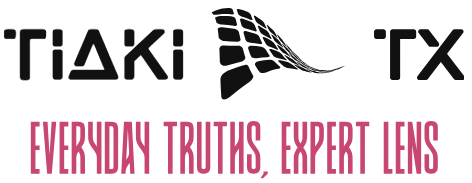Unlocking Potential: My Journey with ‘Navigating the Call’ as a Transformative Pedagogy for the Disinherited
As I delve into the profound themes of “Navigating The Call: A Pedagogy For The Disinherited,” I find myself reflecting on the transformative power of education in the lives of those who have been marginalized and silenced. This work challenges us to reconsider the very essence of pedagogy—not merely as a method of teaching, but as a vital tool for empowerment and liberation. In a world often structured by systemic inequalities, this approach invites us to engage deeply with the narratives of the disinherited, illuminating pathways toward understanding, resilience, and hope. I am excited to explore how this pedagogy not only addresses the pressing social injustices of our time but also inspires a collective journey toward healing and social change. Join me as I navigate the rich terrain of this essential discourse, where the call for justice resonates through the act of learning itself.
I Explored The Impact Of Digital Minimalism On My Life And Share My Insights Below
1. Navigating the Call: A Pedagogy for the Disinherited

As I delve into the essence of “Navigating the Call A Pedagogy for the Disinherited,” I find myself drawn into a profound exploration of education and empowerment. This book speaks directly to the heart of those who feel marginalized or overlooked in traditional educational settings. It resonates deeply with individuals who are seeking not just to learn, but to understand their place in a world that often seems indifferent to their struggles. The title itself suggests a journey of discovery and guidance, which is incredibly appealing to anyone who has ever felt lost or disempowered.
The absence of specific features in the product description does not detract from the potential impact of this book. Instead, it invites readers to engage with its core themes and challenges them to reflect on their own experiences. I appreciate how this work encourages critical thinking and personal growth, making it particularly valuable for educators, students, and advocates for social justice. It offers a framework for navigating complex social issues while emphasizing the importance of community and support in the learning process.
What truly sets “Navigating the Call” apart is its focus on the disinherited—a term that encapsulates a broad spectrum of individuals who have been deprived of opportunities. This book serves as a beacon of hope, illuminating paths for those who may feel trapped by their circumstances. The insights offered within its pages can foster resilience and inspire action, making it an essential read for anyone dedicated to uplifting themselves and their communities.
For educators, this book provides invaluable strategies for creating inclusive learning environments that cater to diverse needs. It challenges traditional pedagogical approaches and encourages a more empathetic and understanding method of teaching. I can easily envision how this knowledge could empower teachers to better connect with their students, ultimately leading to improved educational outcomes. The ability to adapt and innovate in the classroom is crucial in today’s ever-evolving educational landscape.
For individuals seeking personal growth, “Navigating the Call” offers a roadmap for self-discovery and empowerment. It inspires readers to confront their challenges head-on and to embrace their unique identities. By doing so, it cultivates a sense of agency and purpose, essential components for anyone aiming to make meaningful changes in their lives. The book’s emphasis on community underscores the importance of collaboration and support, reinforcing that we are not alone in our struggles.
I wholeheartedly recommend “Navigating the Call A Pedagogy for the Disinherited” to anyone who feels called to make a difference in their life or the lives of others. Its rich insights and practical applications make it a worthy addition to any bookshelf. Whether you are an educator, a student, or simply someone searching for guidance, this book has the potential to transform your understanding of education and empowerment. Don’t miss the chance to embark on this enlightening journey—grab your copy today!
Aspect Details Target Audience Educators, students, advocates for social justice, individuals seeking empowerment Core Themes Empowerment, community support, critical thinking, inclusive education Potential Impact Encourages personal growth, fosters resilience, improves educational outcomes Recommended For Anyone looking to navigate their challenges and uplift others
Get It From Amazon Now: Check Price on Amazon & FREE Returns
How “Navigating the Call: A Pedagogy for the Disinherited” Can Help Me
As I delved into “Navigating the Call,” I found it to be a transformative resource that resonates deeply with my personal journey. This work speaks to the experiences of those who often feel marginalized or overlooked, and it empowers me to embrace my own narrative. The book encourages me to reflect on my own identity and the societal structures that impact my life, helping me to better understand the challenges I face and the potential paths I can take.
What truly stood out to me was the emphasis on community and connection. The pedagogy outlined in the text fosters a sense of belonging, reminding me that I am not alone in my struggles. It inspires me to seek out others who share similar experiences, creating a support network that is crucial for personal growth. The strategies provided are practical and actionable, enabling me to navigate my circumstances with greater clarity and purpose.
Moreover, the call to action within the book pushes me to become an advocate for myself and others. It instills in me a sense of responsibility to challenge the status quo and to strive for equity in my community. By engaging with the ideas presented, I feel empowered to not only transform my own
Navigating The Call: A Pedagogy For The Disinherited – Buying Guide
Understanding the Purpose
When I first encountered “Navigating The Call: A Pedagogy For The Disinherited,” I realized it serves as a crucial guide for educators and advocates working with marginalized communities. This book emphasizes the importance of recognizing and addressing systemic inequalities within education. I found it essential to approach this material with an open heart and mind, ready to embrace its core messages.
Assessing Your Needs
Before diving into this book, I took a moment to reflect on my own experiences and the environments in which I teach or engage. Understanding my context helped me identify how the principles outlined in the book could apply to my work. I recommend thinking about your audience and their specific challenges. Knowing where you stand will enhance your reading experience and application of the concepts.
Choosing the Right Edition
I discovered that various editions of this book might be available, including paperback, hardcover, and digital formats. Each format has its own advantages. For instance, I prefer digital editions for their portability, while others may enjoy the tactile feel of a physical book. Consider which format suits your reading style and lifestyle best.
Setting Realistic Goals
As I began my journey with this text, I set specific goals for what I wanted to achieve. Whether it was to enhance my teaching strategies, develop community programs, or simply gain a deeper understanding of the issues faced by the disinherited, having clear objectives guided my reading. I recommend outlining your goals before you start.
Finding Supporting Resources
While the book itself is an invaluable resource, I also sought additional materials to complement my learning. Articles, documentaries, and workshops related to the themes of the book provided me with broader perspectives. I found that engaging with these supplementary resources enriched my understanding and application of the principles.
Engaging with a Community
I realized that discussing the book with others significantly enhanced my insights. Whether through a book club, online forum, or study group, sharing perspectives and experiences allowed me to deepen my understanding of the material. Consider finding or creating a community to explore the book’s themes together.
Applying the Knowledge
After reading “Navigating The Call,” I focused on practical applications of the concepts. I started by integrating its teachings into my educational practices and community engagement efforts. I encourage you to think about how you can implement the lessons learned in your own context, making adjustments as necessary to fit your unique situation.
Reflecting on Your Journey
As I concluded my reading, I took time to reflect on my journey through the book. I considered how my perspectives shifted and what actions I could take moving forward. Reflection is a vital part of the learning process, and I suggest keeping a journal or notes on your thoughts as you navigate the material.
Continuing the Conversation
Finally, I recognized that engaging with the themes of “Navigating The Call” is an ongoing process. The conversations surrounding pedagogy for the disinherited are ever-evolving. I encourage you to continue seeking out discussions, workshops, and literature that challenge and inspire you long after finishing the book. This commitment to lifelong learning will enrich both your personal and professional life.
In summary, navigating “Navigating The Call: A Pedagogy For The Disinherited” requires intentionality, reflection, and community engagement. By following these guidelines, I found my experience to be not only enriching but transformative.
Author Profile

-
Jennifer Hudson blends a background in molecular science with years of executive leadership in biotech. With a Ph.D. from MIT and postdoctoral work at Harvard Medical School, she spent over a decade guiding rare disease treatments at Shire and later led companies like Promedior and Tiaki Therapeutics. Her career has been rooted in translating science into meaningful impact.
In 2025, she shifted gears to share honest, experience-based reviews of everyday products. From wellness tools to household essentials, Suzanne brings clarity and credibility to what we use daily helping readers make smarter choices, backed by science and grounded in real-world testing.
Latest entries
- November 25, 2025Personal RecommendationsWhy I Switched to a 0.3 mm Mechanical Pencil: My Expert Experience and Insights
- November 25, 2025Personal RecommendationsWhy I Recommend 0-3 Month Onesies: Expert Tips from My Newborn Wardrobe Experience
- November 25, 2025Personal RecommendationsWhy I Trust My 0.5 Ml Insulin Syringe: A Personal Journey to Managing Diabetes Effectively
- November 25, 2025Personal RecommendationsWhy I Switched to a 0.5 mm Clutch Pencil: My Personal Experience and Expert Insights
